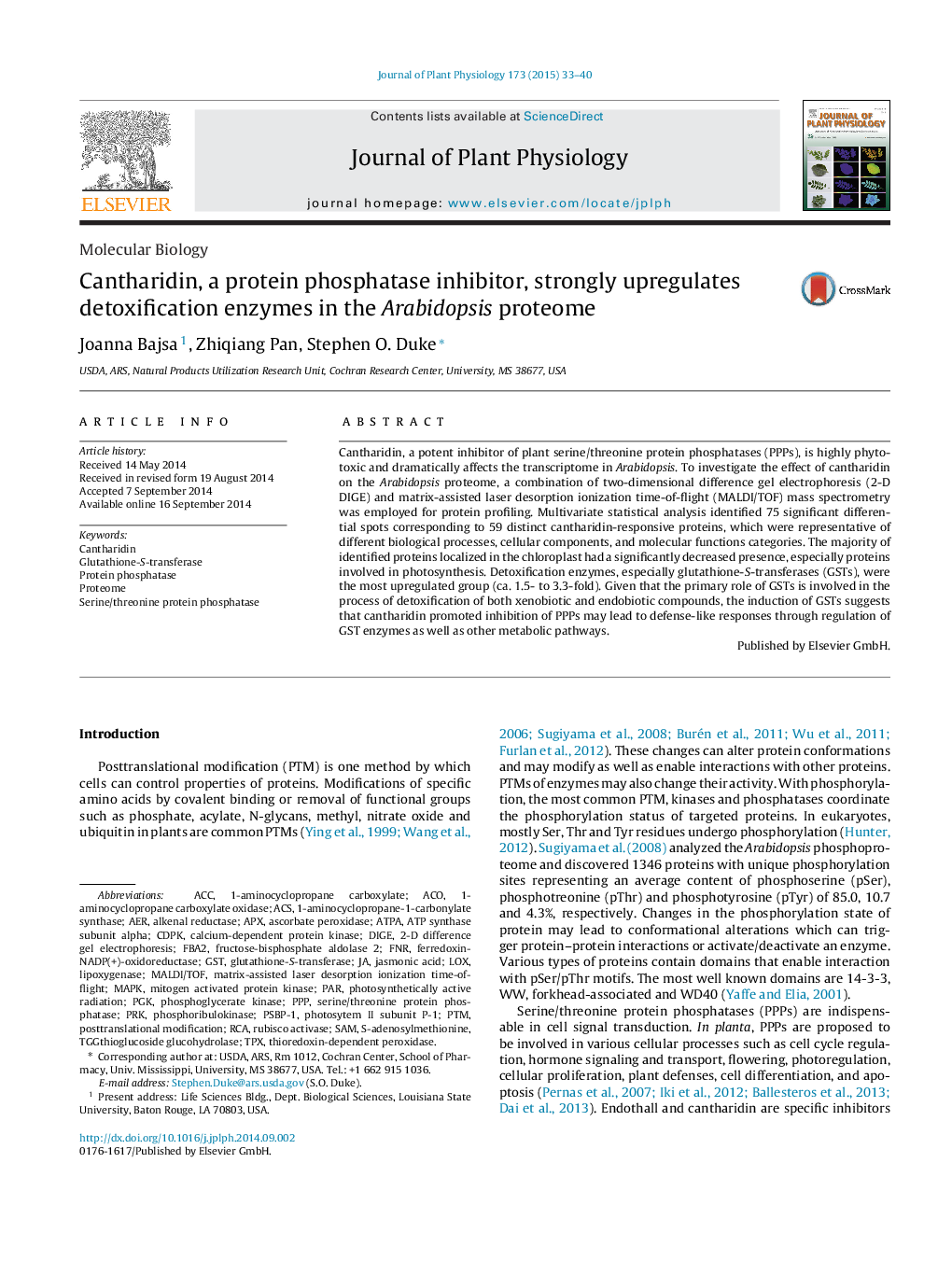| Article ID | Journal | Published Year | Pages | File Type |
|---|---|---|---|---|
| 2055702 | Journal of Plant Physiology | 2015 | 8 Pages |
Cantharidin, a potent inhibitor of plant serine/threonine protein phosphatases (PPPs), is highly phytotoxic and dramatically affects the transcriptome in Arabidopsis. To investigate the effect of cantharidin on the Arabidopsis proteome, a combination of two-dimensional difference gel electrophoresis (2-D DIGE) and matrix-assisted laser desorption ionization time-of-flight (MALDI/TOF) mass spectrometry was employed for protein profiling. Multivariate statistical analysis identified 75 significant differential spots corresponding to 59 distinct cantharidin-responsive proteins, which were representative of different biological processes, cellular components, and molecular functions categories. The majority of identified proteins localized in the chloroplast had a significantly decreased presence, especially proteins involved in photosynthesis. Detoxification enzymes, especially glutathione-S-transferases (GSTs), were the most upregulated group (ca. 1.5- to 3.3-fold). Given that the primary role of GSTs is involved in the process of detoxification of both xenobiotic and endobiotic compounds, the induction of GSTs suggests that cantharidin promoted inhibition of PPPs may lead to defense-like responses through regulation of GST enzymes as well as other metabolic pathways.
